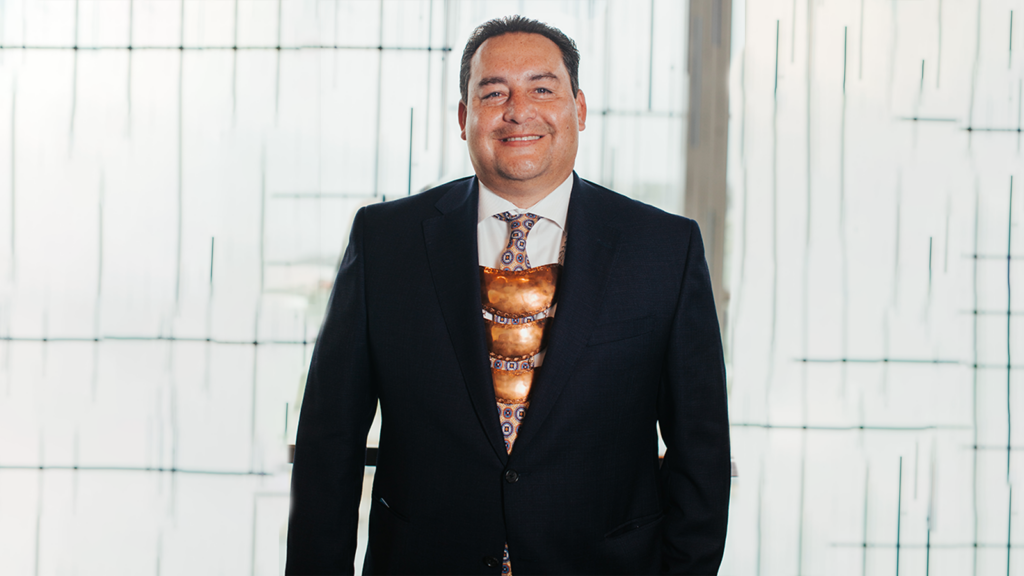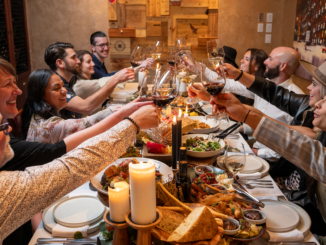Each turn of the calendar brings with it an opportunity. Since time immemorial, tribal people were taught to take that space between the new and the old as a time to reflect upon the past twelve months, revisit our priorities, and ready ourselves to enter the coming year aligned with our values and ready to tackle what changes may come. You may feel some trepidation, but I would invite you to remember your teachings, feel strength from our ancestors, and look toward the future for opportunities to move your people and communities forward.
The United States federal government will soon undergo a peaceful transfer of power. After a tense campaign season, Republicans are set to take control of the White House and both chambers of Congress by the third week in January, with President-elect Donald Trump in the White House, Speaker Johnson in the House, and Majority Leader Thune in the Senate. As of this writing, the President-elect is choosing his cabinet leadership, many of whom may be new to government and new to treaty rights and obligations of the U.S.
What changes will these events and choices bring? While there are many predictions, the reality remains to be seen. It seems a perfect time for a reminder, one handed down by parents and grandparents for generations: We can only control our own actions. Tribal leadership knows this well. We are fortunate in Indian Country to understand that true leadership is about working together to find common ground. Our leaders are always willing to sit across the table and look for fair solutions, the kind that respect the sovereign rights of both the Tribal Nation and the state or federal government and endeavors to do the most good for the most people.
In Oklahoma, we see evidence of that philosophy in action every single day. The amount of good Oklahoma’s tribes have done and continue to do has changed our state, improving the lives of all Oklahomans for generations. And we are just getting started. Rural and city-dwelling Oklahomans, tribal and non-tribal, benefit from job creation. In 2019, studies showed that tribal nations had a $15.6 billion economic impact, supporting more than 113,000 jobs in good-paying positions in industries and initiatives made possible by revenues generated by tribal economic development, which began with gaming more than three decades ago.
Community support from tribal nations keeps Oklahoma’s nonprofits thriving. All Oklahomans benefit from tribal philanthropy. Our state’s nonprofits have received more than $61 million in support from tribal donations and sponsorships. Whether a nonprofit is focused on arts and culture, education and scholarships, food insecurity, medical technology, or programs for preschoolers or the elderly, tribes are making our state better and our people safer, healthier, and happier.
I think back to our pandemic days when vaccines became available in 2021. By March of that year, any resident of Oklahoma who chose to be vaccinated could do so, thanks to the many tribal nations, including Chickasaw, Choctaw, Cherokee, Citizen Potawatomi, and Osage Nations who set up and administered vaccination sites across the state. Stopping a deadly pandemic was something we could all agree on.
When our state opted out of the United States Department of Agriculture’s (USDA) new Summer Supplemental EBT program, designed to help low-income families with school-aged children cover the cost of food during summer months, once again, tribal nations stepped in to help. The Cherokee, Chickasaw, and Choctaw Nations entered a partnership, offering Summer EBT within their borders, helping some 100,000 eligible Native and non-Native families. Feeding hungry children was something we could all agree on.
Those initiatives and efforts were, and are, successful because we work together. No two tribal nations hold the same views or policy initiatives on everything, but where we can find common ground, we do find common ground.
Let’s all take that idea of working together forward with us.




